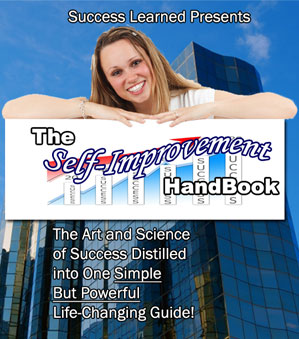Here’s a funny thing about today’s world: We live in a world of modern technology and convenience yet still can’t find the time to take care of ourselves. There are many people who, while enticed at the thought of meditation, never give it a go because they are just too busy, or can’t find the space or quiet to attempt it. For others, the problem isn’t that they can’t find the time, but rather that they can’t find the time to commit.
Life is busy- that is entirely understandable, but instead of using this as an excuse not to meditate, you should use it as motivation to meditate. The busier you are, the more stressed you will be, and being stressed is only one (of many) reasons why you need to take time to relax.
(adsbygoogle = window.adsbygoogle || []).push({});
Why Meditation is Important
Meditation is a vital, yet often overlooked aspect to health and wellbeing. Often mistaken for a spiritual or religious practice, not everyone knows that meditation has a range of physical and psychological benefits that have been proven by numerous psychologists, physiologists and neurologists time and time again.
Meditation is known to (among others);
- relieve stress (by lowering levels of cortisol- the stress hormone)
- relax the body and promote cell regeneration for faster healing and resilience
- Improves cognitive and motor functioning as well spacial awareness
- Improve both the quality and quantity of your sleep, amplifying the effects of both the above as well as reversing the effects of aging, strengthening the immune system and increasing the production of dopamine and melatonin- healthy hormones required for relaxation, rest and happiness
But the physical benefits are only one branch of meditation that makes it necessary to your happiness. Its psychological effects are what will make the difference between a healthy, happy life and an uncomfortable existence. Meditation:
- Reduces anxiety and depression
- Boosts and improves our mood
- Creates self-awareness, confidence and an increased sense of self-esteem
- Increases creativity
- Improves memory and brain functioning
- Makes us kinder
- Promotes self-control
- Improves our productivity by making us more motivated, disciplined and driven
- Betters communication, thereby improving the quality of our relationships
- Centers us, by calming the thoughts and emotions
… And many more. Stress is one of the biggest health issues we have. It is responsible for many illnesses and injuries, both physical and emotional. Meditation not only rids the body of stress, it replaces it with healthy hormones that allow us to relax, recuperate and love life.
If you can’t find the time to meditate, you must do so with urgency. You owe it to yourself to rest.
How to Make a Habit of Meditation
Committing to a meditation regime does not have to be strenuous, tedious, time consuming or expensive. There are many simple but effective practises you can put in place to gain the benefits of meditation without rearranging your entire schedule or going out of your way to do it.
First what you have to do is find a form of meditation that suits you.
Mantras can be said, or thought, any time you might need them. They can stem from or be inspired by religious mantras- for example the Hindu or Buddhist mantras or a bible verse- or they can be a powerful phrase of your own design. You can say it to yourself when you see fit. This could be as part of a daily ritual or when you are under pressure and could use an anchor to center yourself.
Concentration Meditation is, as its name implies, an exercise in focus. While this is best suited to those who can make a ritual out of it, there is no wrong way to meditate and so concentration meditation can also be practised at your convenience. It’s best utilized by finding somewhere quiet where you can sit by yourself and focus on a single thought or feeling for as long as you need to.
Mindfulness Is a lovely exercise that you can try at almost any moment because its purpose is to experience whatever you are going through to the fullest. You can incorporate mindfulness into your conversations, your meals, your job, your relationships… anything you feel comfortable trying it out with!
Once you have selected your method of meditation, you can now plan to commit to it. Here are 5 easy ways you can make a habit out of it:
- Pick A Time (Or a Trigger)
The trick here is not to commit to an exact time, but rather a time of day. Saying you will meditate every day at 16:00 can easily become a disappointing failure when life, as it does, gets in the way. But saying you will meditate every afternoon means you can adjust the times of your meditation without feeling guilty, while still maintaining it as a habit. Or, if this doesn’t work for you, pick a trigger- say for example you choose to meditate every time you drink a cup of coffee, or just before (or after) you have a shower. This will keep your meditations steady without interfering in your life.
- Find Peace and Quiet (for best results)
Although not all meditation requires peace and quiet, it will make your meditations so much easier, more powerful and more effective too. Finding peace and quiet might mean waking up early in the mornings before everyone else, or stepping out of the office during your lunch- work with whatever you have and use it to your advantage.
- Hold Yourself Accountable
If you are serious about meditating, but are weak-willed, sharing your purpose with those you trust will go a long way because they will keep you in line when you start to slip, or become lazy. Share your new regime with friends and/ or family, and if you are comfortable with it, invite them to join you. The support will boost morale, but more importantly, will make you feel responsible and accountable when the urge to give up kicks in.
- Invest In Meditation
You don’t have to spend money to do this. You can invest some of your time into this as well. The trick here is to convince yourself to take it seriously (or stick to it) by sacrificing something else. If you have money to spare, buy a yoga mat- you will want to use it once you own it. If you can’t afford something like that, put a rewards programme in place, for example, that you can only indulge in your favourite TV show, or that chocolate bar, once you have reached your daily meditation goal. Sometimes we need convincing, so go ahead, convince yourself!
- Record Your Journey
Starting a journal, diary, scrapbook or album of your meditation journey will inspire you to stick to it, but what is even better than that is to grow support while you do. Never forget, the internet is a wonderful thing. If you don’t mind sharing your experiences with the public, consider starting a blog all about your experiences, your regime, and the lessons you have learned. You will feel wonderful when you start getting subscribers, and this will motivate you to stay focused. If you are not so creative, or lack the time to maintain a blog, reach out to others on Facebook, Twitter and Instagram- there are entire communities of likeminded people to be found there.
If you are really not shy at all, try YouTube. Documenting your journey in video is a great way to relive it in future. If you do it well, you could make money from this too!
About the Author
Founded in 2003 by Vishen Lakhiani, Mindvalley Academy is an online school for all the things regular schooling forget to teach you.
We bring you world-class courses from the world’s top personal growth authors to allow you to create remarkable transformations in all areas of your life.
We know that you are so much more extraordinary than you were made to believe.
It isn’t just about having a good career – lead a life that is extraordinary in all dimensions of being human, and beyond.
Learn more at Mindvalley.








